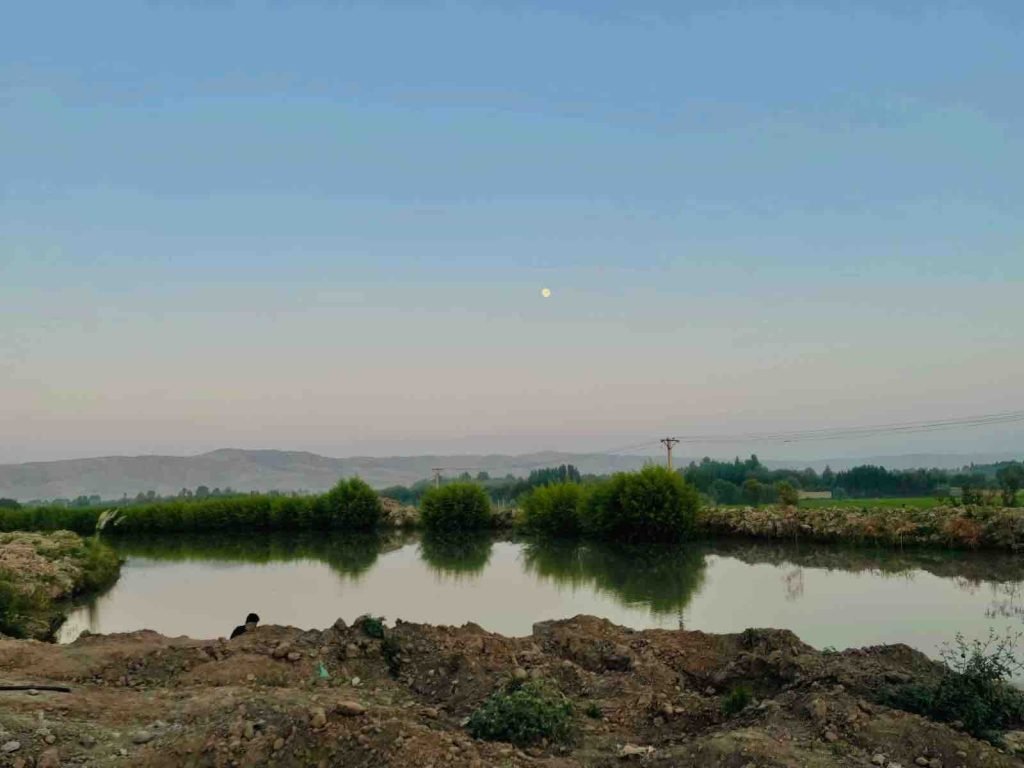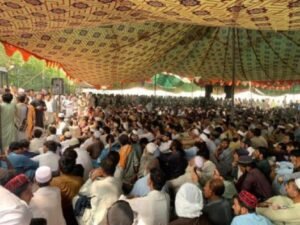Afghanistan’s Exodus: Uncertainties Looming Amidst Taliban Rule

Northern Takhar province. Photo: @AADIL
By Ilhamuddin Afghan
Afghanistan is experiencing a mass exodus as its people grapple with the uncertainty of Taliban rule. The promise of stability and economic welfare remains unfulfilled, and after more than two years under Taliban rule, the dreams of a better future have given way to a harsh reality.
The Taliban’s resurgence has caused an economic downturn, leaving many Afghans unemployed. This has worsened the already challenging circumstances for those who lost their government positions. As a result, a significant number of Afghans are choosing to leave their homeland in search of security and a better life. It is a difficult decision to make, but the struggling economy leaves them with few options.
“My daughters schools are closed, and there is no chance of them opening again, so I moved to Turkey. I had to leave my country because of this.” Mohammad Noor, now a residence of Turkey said.
Mohammad Noor’s story exemplifies the consequences of the Taliban’s policies. He was forced to flee due to school closures and an uncertain educational future for his children. He represents countless others facing similarly agonizing choices.
Even among those who once fervently supported the Taliban, there is a palpable disappointment with the harsh realities of their rule.
Afghans are striving to change the course of their nation, with a growing desire for progress. The Taliban’s actions in the past more than two years have raised serious concerns, but little has been done to address these issues or establish internal legitimacy.
Afghanistan is currently isolated on the global stage, lacking diplomatic connections with other countries. The current administration faces significant challenges due to the absence of a constitution. The administration has a monopolistic and autocratic grip on power with little inclination towards inclusivity.
Taliban’s Intolerance: Afghans Displaced
The Taliban’s restrictive policies, particularly regarding girls’ education, have caused concern and opposition. Millions of girls have had their educational opportunities severely limited, damaging the Taliban’s reputation both at home and abroad. The Taliban’s rule is marked by political intolerance, as evidenced by the prohibition of political parties and restrictions on media and freedom of expression.
Political leaders are afraid of criticism, leading to self-censorship and silence. Many political party members have become disillusioned with the Taliban’s restrictive system, which has left little room for diversity and protection of the rights of Afghans, especially women and girls. The optimism that initially accompanied the Taliban’s return has waned.
Political activist Muhammad Ali Hewadyar highlights the predicament of political parties under the Taliban.
“The parties were involved in politics, but after the Taliban returned, none of them continued to do so. I don’t think the Taliban will permit the parties to resume operations,” said Hewadyar.
Once-active parties have stopped operating. Optimism for their revival is fading. The Taliban does not tolerate dissenting voices, leaving many activists and political party members questioning their future.
Afghanistan is at a crossroads. The consequences of the Taliban’s policies extend beyond its borders, leading to isolation, sanctions, and economic catastrophe. The Taliban’s lack of engagement with the international community increases uncertainty about Afghanistan’s future. The Afghan people are seeking stability amidst ongoing instability.
The mass migration of Afghans reflects a universal desire for a future free from terror and unpredictability. The Afghan people are at a crossroads and are waiting for a solution. The world is watching and hoping for a path towards stability in this tumultuous chapter of their history.
Ilhamuddin Afghan is a university professor based in Afghanistan.
Note: The contents of the article are of sole responsibility of the author. Afghan Diaspora Network will not be responsible for any inaccurate or incorrect statement in the articles.






